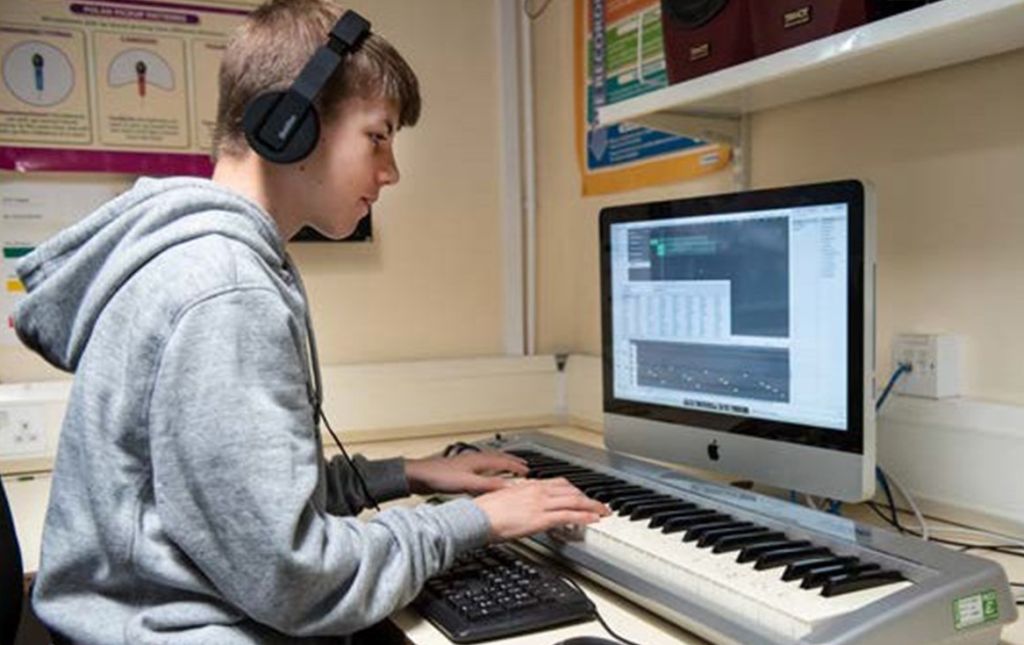Why study Music?
You will:
- be able to study Music in much greater depth than you have at KS3.
- develop a deeper understanding of a wide range of musical styles, genres and traditions from all over the world.
- understand how to explain what you hear in music accurately, with reference to the subtleties in the rhythm, harmony and instrumentation.
- increase awareness and confidence with software used to produce music in the modern popular music industry.
- improve your instinct for how notes can be made to fit together to create a range of musical effects. This will give you more
- build confidence for improvising and composing your own music.
 What will I study?
What will I study?
The AQA course is delivered through four areas of study:
- Western classical tradition 1650–1910
- Popular music
- Traditional music
- Western classical tradition since 1910
How will I study?
- Component 1 – Understanding Music (40% of the marks)
- Component 2 - Performing Music (30% of the marks)
- Component 3 - Composing (30% of the marks)
All of the units will be covered during lessons, due to the time consuming nature of coursework, you will be expected to work outside of lessons developing your performances and compositions using music software.
How will my work be assessed?
- Component 1 takes the form of a listening exam, where you will listen to musical extracts and answer questions based on what you hear. You will also be expected to notate a short melody or rhythm at some point during the exam. You will have to write critically about two of the set pieces in the areas of study.
- Component 2 requires two performances (individual and group), produced using DAW software and a variety of techniques to sequence and record performances of pre-existing pieces of music. This includes using a combination of midi tracks and audio tracks to create accurate realisations.
- Component 3 requires you to write two compositions. One composition is to a brief, the other is a free composition; composing a piece of music stimulated by two or more of the areas of study. Again, this will be using DAW software.
Due to the nature of this being a technology course there is no requirement to play a musical instrument.
Please see Ms Hammond for more information.
